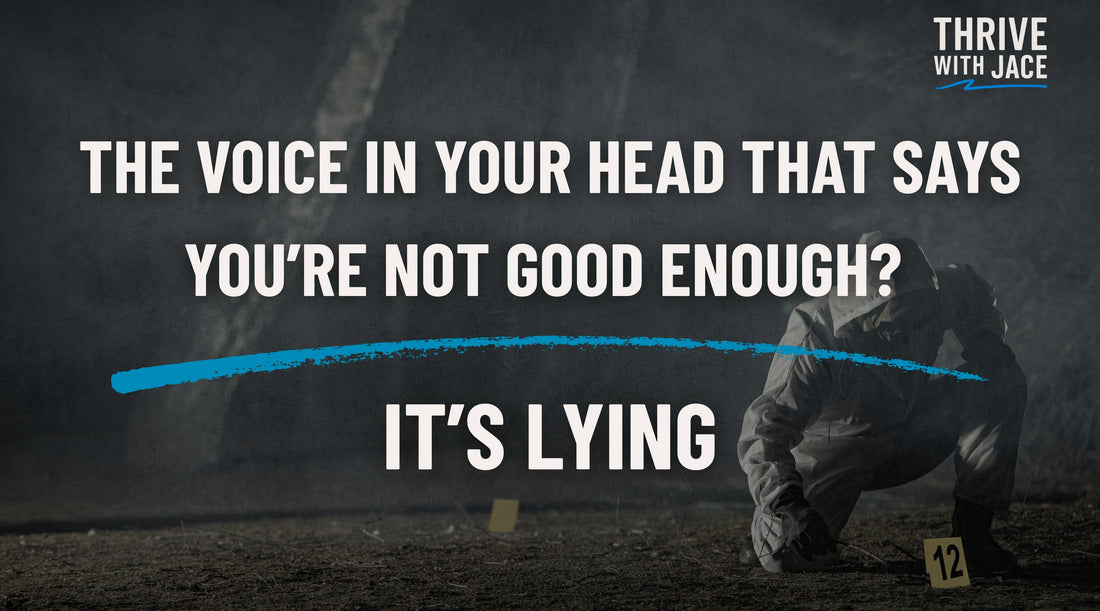
The Voice in Your Head That Says You’re Not Good Enough? It’s Lying.
Share
How to shut down imposter syndrome without losing your grip on who you are
You know that voice.
The one that pipes up just when you’re stepping up or doing something that matters.
“You’re not qualified.”
“Someone’s going to find you out.”
“Who the hell do you think you are?”
It’s not just you.
That voice — the one that tells you you’re a fraud — shows up in nearly every person I’ve ever met who’s pushing themselves. It’s loudest when you care most. And it doesn’t mean you’re failing.
It means you’re stretching.
But let’s be clear about one thing:
That voice isn’t truth. It’s fear dressed up as fact.
And if you don’t learn to call it out, it’ll run the show. Quietly. Relentlessly.
When the Inner Critic Grabs the Mic
Imposter syndrome doesn’t always sound dramatic.
It sneaks in as doubt. Perfectionism. People-pleasing. Avoidance. Overpreparing.
It says:
“If I don’t get this exactly right, I’ll be exposed.”
“They probably regret giving me this opportunity.”
“I just got lucky.”
“I shouldn’t speak up — I’m not the expert.”
It’s exhausting. And it’s dangerous — because it keeps you small.
It stops you from showing up fully, even when you’ve earned your place.
The Problem Isn’t the Voice — It’s What You Do With It
You can’t kill the voice completely.
But you can stop it deciding your life.
That means stepping into authenticity — not perfection.
You don’t need to be flawless.
You just need to be real and aligned with who you actually are.
That’s what makes imposter syndrome lose its grip:
when you stop trying to play a part and start showing up as yourself.
Start With These 4 Questions
When that voice hits, ask yourself:
1. What fear is this really about?
Failure? Judgement? Rejection? Get specific. When you name it, it shrinks.
2. What matters more than this fear?
Your values should be louder than your doubt. Integrity. Growth. Truth. That’s your compass.
3. Am I protecting my energy or proving myself?
Don’t waste energy winning people over who were never for you.
4. If I acted like I belonged here, what would I do next?
Do that. Even if your hands shake.
Boundaries Protect You When You’re Vulnerable
You can’t silence the inner critic by drowning it in noise.
You need to protect the space around your head and heart.
That means:
- Saying no to people who drain you or belittle your growth
- Logging off when comparison starts creeping in
- Choosing depth over performance
- Reminding yourself that just because it feels uncomfortable doesn’t mean it’s wrong
Strong boundaries aren’t cold. They’re essential.
They create the space where you can breathe, think, and show up without wearing a mask.
Take Responsibility for Your Space — Internally and Externally
You don’t choose the fact that imposter syndrome shows up.
But you choose how long you let it stay.
And the longer you avoid responsibility for your response, the louder that voice gets.
So take ownership.
Own your progress.
Own your impact.
Own the fact that growth feels awkward.
You can be scared and still capable.
You can feel unsure and still show up.
You don’t need permission to take up space.
Final Truth: The Real You Is Good Enough
You’re not an imposter for doubting yourself.
But you’ll become one if you keep abandoning who you really are just to feel safe.
The fix for imposter syndrome isn’t more qualifications, more praise, or another three years of “proving yourself.”
It’s self-honesty.
It’s alignment.
It’s action that reflects your values — even when your voice shakes and your critic screams.
You don’t need to feel ready.
You need to feel real.
Ready to Silence the Bullshit Voice and Lead From the Real You?
This is what Thrive in Chaos is built for.
When fear, pressure, and doubt close in — you need strategies that help you hold your ground without selling yourself out.
🔥 Download the first 30 pages for free 👉 [Grab them here]
🧰 Or get the 3-Day Resilience Reset + the Resilience Rapid Response Kit — 16 powerful tools that help you act with strength, not fear
Imposter syndrome doesn’t get the final say.
You do.
